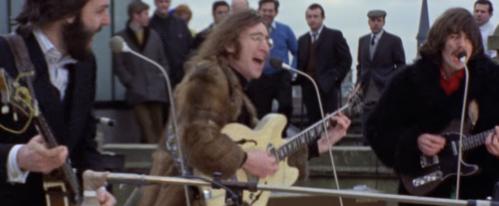The relationship between Gretsch and its artists is one of mutual respect and collaboration, where the guitars themselves are more than just tools of the trade—they are instruments of creativity, shaping the future of music one iconic riff at a time. Whether you're a fan of rockabilly, classic rock, or contemporary rock, the legacy of Gretsch guitars lives on in the music of these legendary artists, proving that the right instrument can truly inspire musical greatness.
A Brief History of Gretsch Guitars
Founded in 1883 by Friedrich Gretsch in Brooklyn, New York, Gretsch initially made drums, banjos, and other percussion instruments. However, by the 1930s, the company was focusing heavily on electric guitars. Gretsch soon became known for its innovative designs, high-quality craftsmanship, and unique sound.
Some of the most notable names in music have played Gretsch guitars, including George Harrison of The Beatles, Chet Atkins, and Bo Diddley. These legendary players helped cement Gretsch’s place in rock ‘n’ roll history. With their signature “Filter’Tron” pickups and bold, resonant sound, Gretsch guitars became synonymous with the wild spirit of rockabilly and the smooth elegance of jazz.
Chet Atkins: The Ambassador of Gretsch Sound
Perhaps no name is more synonymous with Gretsch guitars than Chet Atkins. Known as the "Country Gentleman" and a key figure in the development of the Nashville sound, Atkins was a virtuoso guitarist and producer who helped put Gretsch on the map as a choice instrument for serious musicians.
Chet’s relationship with Gretsch began in 1954 when he began using the company’s guitars, particularly the Gretsch Country Gentleman model, which was designed in collaboration with him. Atkins' smooth fingerstyle technique and mastery of the guitar became a hallmark of Gretsch’s reputation for producing professional-grade instruments with both warmth and clarity.


Chet’s relationship with Gretsch began in 1954 when he began using the company’s guitars, particularly the Gretsch Country Gentleman model, which was designed in collaboration with him. Atkins' smooth fingerstyle technique and mastery of the guitar became a hallmark of Gretsch’s reputation for producing professional-grade instruments with both warmth and clarity.
His influence reached far beyond country music, however. Atkins played an instrumental role in shaping the sound of many genres, including pop, jazz, and rock. His partnership with Gretsch helped establish the guitar as a symbol of musical sophistication, and to this day, the Chet Atkins Country Gentleman model remains one of the most iconic guitars ever made.
George Harrison: The Quiet Beatle with a Gretsch Legacy


George Harrison, the lead guitarist of The Beatles, is another legendary figure whose musical influence is inseparable from the sound of Gretsch guitars. Harrison’s use of a Gretsch Country Gentleman during the early days of The Beatles helped define the band’s sound during their rise to global fame.
Although Harrison is best known for his use of a Rickenbacker 360/12 on songs like A Hard Day’s Night, it was his Gretsch guitar that gave The Beatles many of their jangly, twangy tones on tracks like I Saw Her Standing There and Please Please Me.
George Harrison's association with Gretsch guitars was deeply significant because he represented a bridge between rock 'n' roll's early rockabilly influences and the more experimental sounds that would later emerge in the 1960s.
Brian Setzer: The King of Rockabilly Revival
When it comes to Gretsch guitars and rockabilly, few names stand out more than Brian Setzer, the frontman of The Stray Cats and a key figure in the rockabilly revival of the 1980s. Setzer’s use of the Gretsch 6120 (a model made famous by rockabilly legend Eddie Cochran) helped bring the Gretsch brand back into the limelight during the early days of the rockabilly revival.
With his big, bold, and energetic guitar playing, Setzer became the face of the modern rockabilly movement. His sound was defined by bright, sharp tones that cut through the mix, a perfect match for his fast, virtuosic soloing and punchy rhythm guitar work.
Brian Setzer's iconic Gretsch White Falcon also became a symbol of the rockabilly genre’s aesthetic, and his influence helped shape the future of both rockabilly and swing. His powerful performances and distinctive guitar style ensured that Gretsch remained relevant in the world of contemporary rock and roll.


Which Gretsch Guitar is Right for You? – The Range
Choosing the right Gretsch guitar depends on your playing style, budget, and preferences. If you're just starting out, a more affordable option like the Streamliner or Electromatic models will give you access to that signature Gretsch sound without breaking the bank. For intermediate to advanced players, the Professional Series or Vintage Select guitars offer the best in terms of quality, performance, and tonal versatility.
Ultimately, Gretsch guitars excel in offering a rich, full-bodied tone, a bold aesthetic, and a unique blend of vintage and modern elements. No matter what genre you play, there’s a Gretsch guitar for you.
Conclusion
Gretsch guitars have earned their place as legends in the world of musical instruments, thanks to their innovative designs and distinctive sound. From the affordable yet capable Streamliner to the high-end Professional and Vintage Select series, there’s a Gretsch for every player and every budget. So, whether you're looking for a guitar that echoes the past or one that helps you push the boundaries of your musical expression, Gretsch has you covered. With a Gretsch in your hands, you're not just playing an instrument; you're becoming part of a rich musical legacy.




